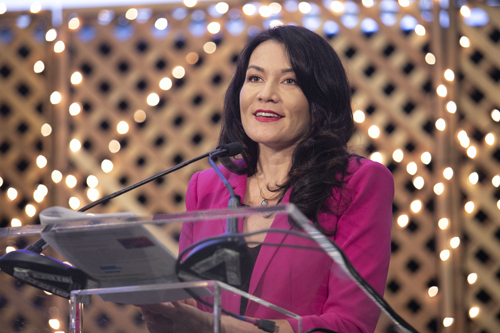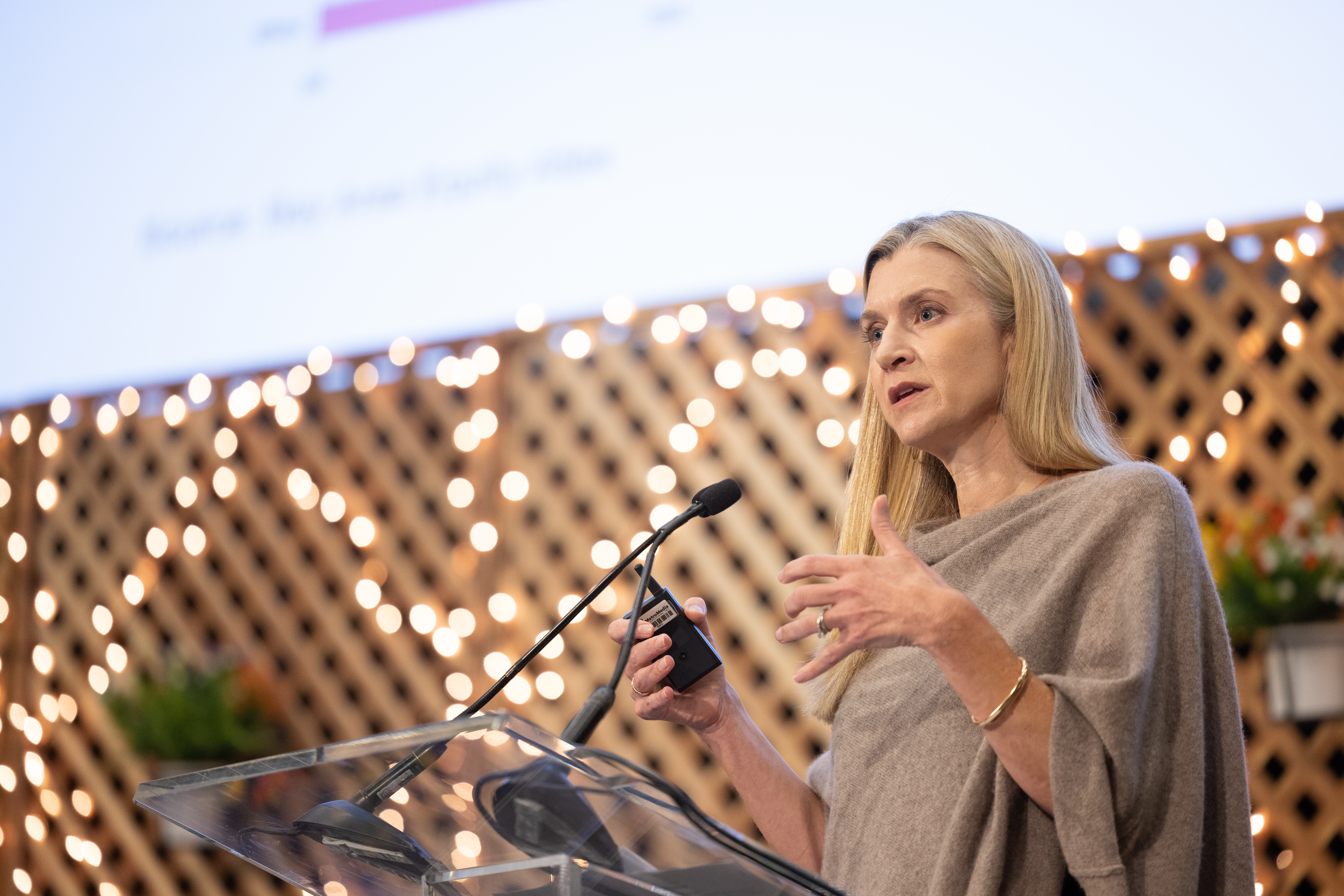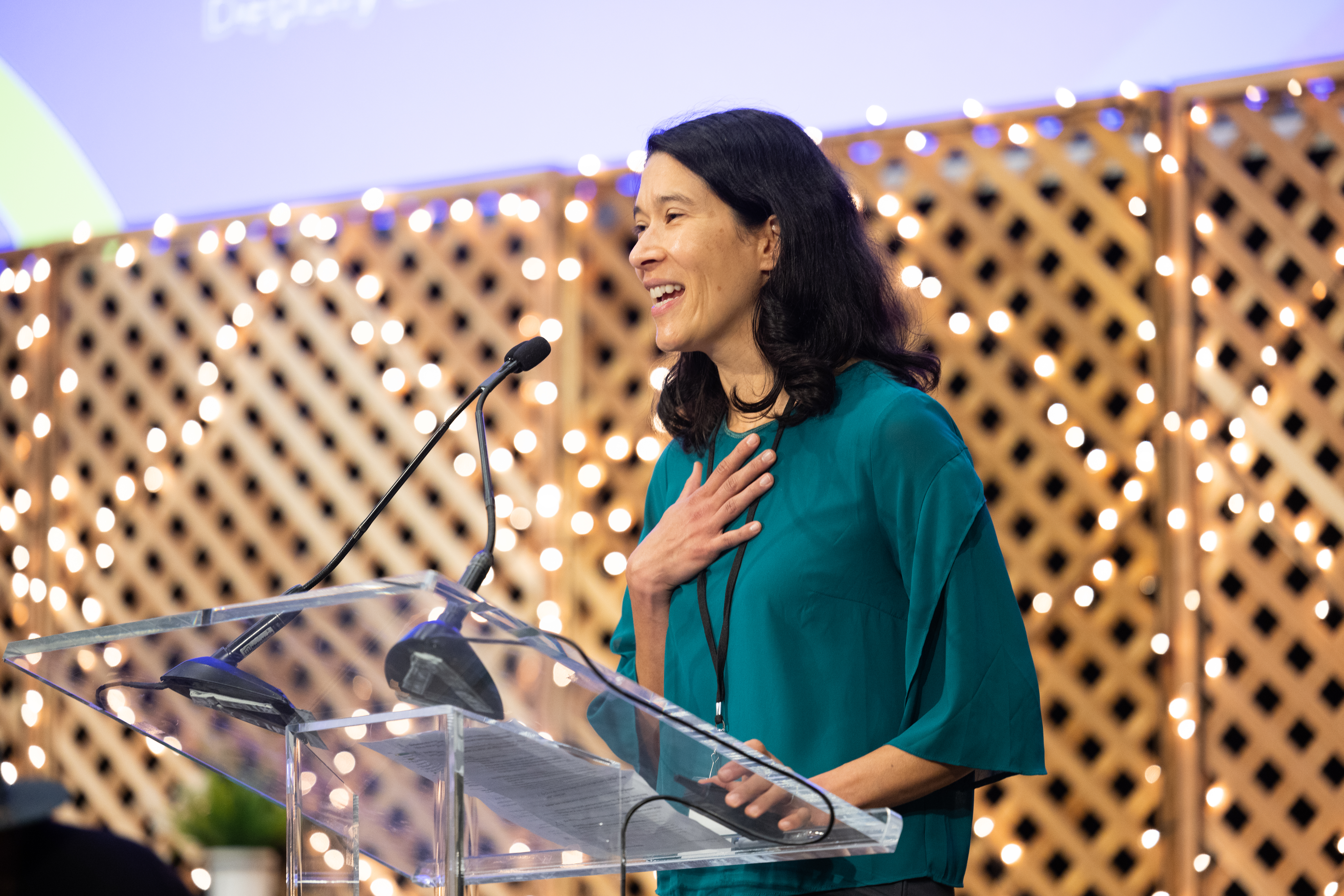Nevada California Jobs First (CERF) Roundtable – February 2023
On February 7, 2023, Valley Vision hosted a roundtable on the California Jobs First (CERF) for Nevada County. The session included an overview of the California Jobs First (CERF) Program (slides below) as well as a discussion about the concerns, needs, and opportunities for the county. In addition to the slides below, you may also view the discussion notes and handout.
Building A Community-Centered Clean Economy Event Materials
On February 13, 2023, Valley Vision hosted Building A Community-Centered Clean Economy, a hybrid event that acted as both the second Climate, Justice, and Jobs Summit as well as the Community Economic Resilience Fund (CERF) kick-off event.
The event featured a video from CJJ’s Community First Listening Series and a live Community Panel discussion that shared perspectives on effective community engagement and ways to remove barriers to accessing jobs. Our Keynote Speaker, Stewart Knox, Secretary of the Labor and Workforce Development Agency, kicked-off the CERF program by sharing the state’s vision for high road careers in a low-carbon economy and some of the strategies our region can utilize as we begin the planning process. His session concluded with a brief Q&A moderated by Valley Vision’s CEO, Evan Schmidt and transitioned into her presentation on next steps and upcoming opportunities for our region’s CERF efforts.
View the Recording & Slides
Want to follow along with the slides? Please download the event slides here.
Community First Listening Sessions Highlight Video
During the event, a video was shared of previously held Community First Listening sessions across Sacramento, Yolo and Placer counties. The video was a great way to show off the work of the Climate, Justice, and Jobs program as well as set the tone for the community panel that followed.
Community Panel Main Takeaways
Panel members expressed a clear need to meet people where they are. From youth to experienced adults, panel members discussed a lack of understanding of clean economy careers. Targeted outreach, engagement and education strategies need to be developed with specific populations in mind considering verbiage choice and modality of communication. Examples given included youth primarily using online platforms to access resources and information, and older adults benefitting from clearing houses to help them navigate the same. Another description of this disconnect was the lack of education and training provided to incarcerated individuals in the clean economy and other viable industries to prepare them for immediate, gainful employment post-release.
Another clear imperative of the panel was to support organizations already doing the work. Nonprofit and grassroots organizations on the ground, in neighborhoods and working with specific, high barrier populations can reach these individuals more effectively. Additionally, these organizations frequently provide more holistic services, meeting basic needs including housing, transportation and other supports to enable historically underserved community members to take advantage of training and employment opportunities.
The community panel described feeling fatigued and disconnected from making a real impact on decision making. When describing the communities they represented, several panel members used the word resilient. As clarified by Executive Director Kiara Reed of Civic Thread and the panel moderator, “When we say something is resilient, we also have to acknowledge that it has been knocked down and that it’s not sustainable.” The panel gave another clear mandate, to have a genuine seat at the table and influence when decisions are being made that affect them. They do not only want their voices to be heard, but also have them meaningfully considered and result in action.
Acknowledging this fatigue, we are incredibly grateful to our panelists who offered their honest thoughts with us once again.
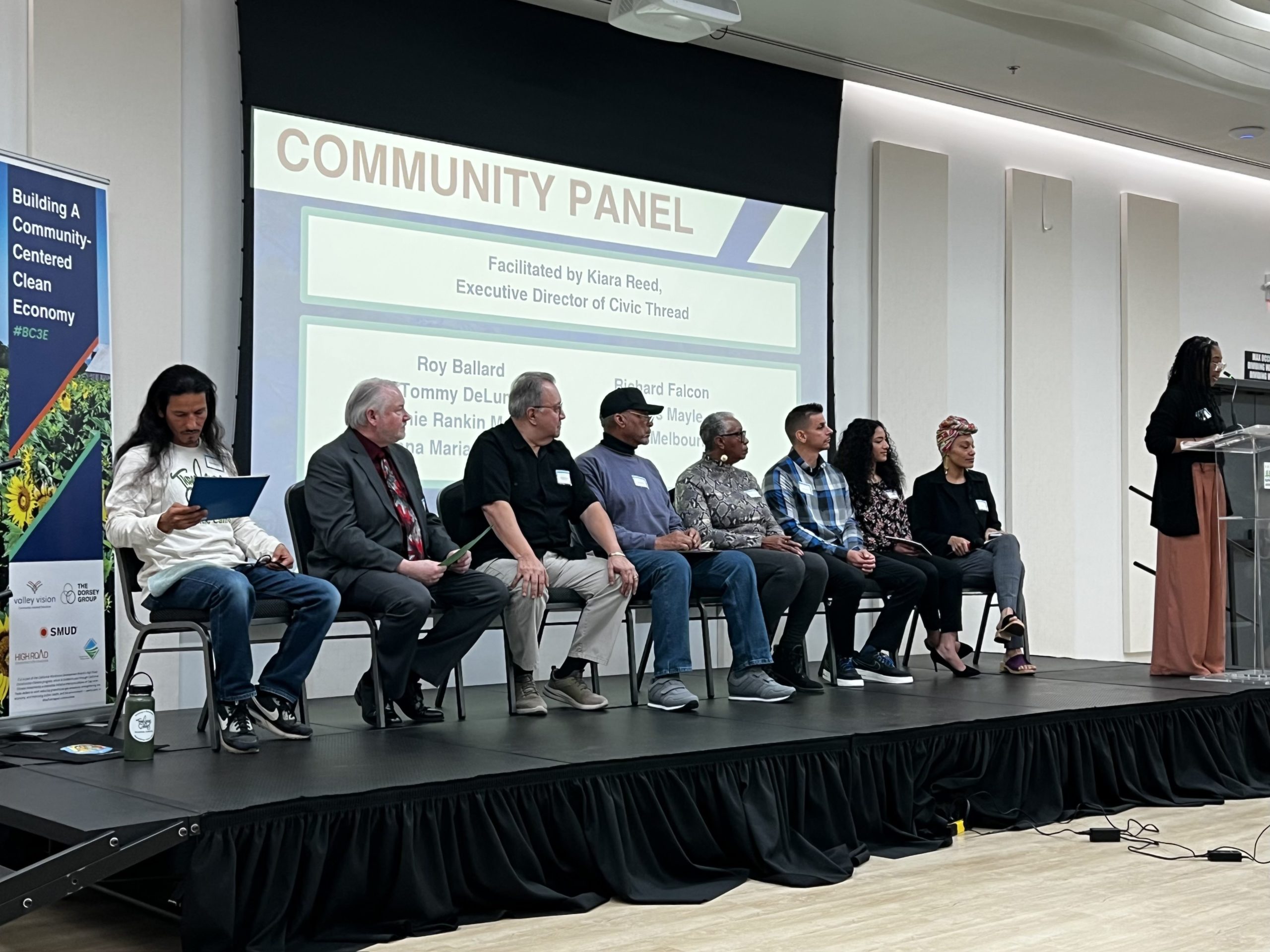
Panelist Bios
(from left to right in recording/photo appearance):
Farmer Alfred Melbourne is owner and operator of Three Sisters Gardens and a longtime resident of West Sacramento. Their mission is to teach at-risk youth how to grow, harvest, and distribute organic vegetables and get the community involved in supporting the at-risk youth population in Yolo County.
Roy Ballard is an Advocacy Fellow at the Center for Employment Opportunities, where he dedicates himself to finding employment and ministry opportunities for individuals impacted by the justice system. He developed a passion for serving others during his incarceration, where he spent 10 years volunteering in faith-based prison recovery programs.
Richard Falcon is a talented local artist who established Teatro Nagual, a group of artists that promote civic engagement utilizing various forms of art. He values community involvement and expresses it through his role as Lead Organizer at United Latinos and has been recognized as one of Sacramento’s Top 25 Latino Change Makers.
James Mayle is a retired law enforcement professional who was born and raised in Sacramento. As a lifelong resident, James is dedicated to encouraging young people to get involved in their communities and become informed citizens.
Janie Rankins-Mayle is also a retired law enforcement professional who was born and raised in Sacramento. Throughout her career, Janie has been actively involved with the local school district and has consistently demonstrated a commitment to being an active member of their community.
Tommy DeLuna is a Life Coach for the Anti-Recidivism Coalition, a nonprofit that supports formerly incarcerated individuals and advocates for criminal justice reform. Tommy also has experience working in construction. He is dedicated to raising the level of success with each employer and employee that he works for.
Anna Maria Thomas is a student at Christian Brothers High School in Sacramento and is part of the Zero Carbon Champion Program, a youth-led climate ambassador program. Leveraging her passion for building a better community by promoting legislation that addresses the needs of our environment, Anna Maria is actively involved in Student Government and Environmental Club, in addition to other clubs at her high school.
Last but not least, a huge thank you to Kiara Reed who facilitated the panel. Kiara is the Executive Director for Civic Thread, a nonprofit planning and advocacy organization focused on achieving health equity in the built environment. Kiara brings over eight years of community engagement and leadership experience and has strong community connections and a vast network across multiple sectors. She leverages her own lived experiences as she works to build equitable outcomes by empowering marginalized voices and championing community-led solutions.
Live Polling Results
As part of the event, Valley Vision used a live polling website called mentimeter in order to gauge perspectives on two important questions to help establish a common vision as we enter the CERF planning process. Highlights from the two questions are below and the full results are available here.
What does it look like to be community-centered?
- Organized and transparent decision-making that allows time for people to understand and the issue and voice their opinions
- Meeting people where they are because each community has varied needs
- When the visible development of a neighborhood reflects the desires, needs, and identity of the people that live and work there
What do you envision for our region when you think about a clean economy?
- Economy focused on and using renewable resources where employees earn livable wages, healthy working conditions, and have opportunities for growth
- Looking throughout the region for reliable long-term solutions. This includes understanding existing partnerships
- Reduced climate impacts with a particular focus on communities and individuals most vulnerable to these impacts
What Comes Next?
We’re looking forward to continuing this work through the Community Economic Resilience Fund. If you are already a part of the coalition, keep an eye out for information as we begin to convene our subregional roundtables. If you haven’t but are interested, please fill out our CERF Interest Form. We also plan to release multiple RFPs to bring in additional partners over the coming months, including:
- Data & Research Lead
- Community Engagement & Tribal Leads
- Capacity Building Lead
- Business and Labor Engagement Leads
- Communications Lead
Economic Development Pilot Projects
Program Background
The state has released the SFP for the Economic Development Pilot Projects program. This program will fund projects that align with the values of the California Jobs First (CERF) program, demonstrate potential uses of California Jobs First (CERF) implementation funds, and are part of a plan approved or adopted by a local or regional entity within the past five years.
The Pilot Projects program is occurring outside of the planning phase and do not require a letter of support from the Collaborative. Projects that are not eligible for pilot funding may still be eligible for funding as part of the California Jobs First (CERF) Planning Phase.
Valley Vision’s Role
As the manager of the Prosperity Strategy — our Comprehensive Economic Development Strategy for the counties of El Dorado, Placer, Sacramento, Sutter, Yolo, and Yuba — Valley Vision is sharing information regarding the Pilot Projects and encouraging those with eligible projects to apply. We are also drafting letters of support as requested for all eligible projects.
In December, Valley Vision submitted public comment in response to the initial framework released in November.
Regional Conversation
On January 27, 2023, Valley Vision hosted a regional conversation on the pilot projects to:
- To provide an overview of the California Jobs First (CERF) Economic Development Pilot Projects program and eligibility requirements;
- To provide clarification on the SFP and program guidelines;
- To provide a space for information and knowledge sharing in order to strengthen and best position our region’s proposals;
- To open avenues for potential collaboration.
California Jobs First (CERF) Application Workshops
Backbone Support & Governance Meetings
In July of 2022, Valley Vision hosted a series of meetings to develop our proposed governance structure for our region’s application.
Committee Application Workshops
In July of 2022, Valley Vision hosted a series of workshops to help inform our region’s application. These committees were formed based on the areas of activity that will take place during the planning phase.
Livability Summit 2022 Panelists & Speakers
The Livability Poll: A Wellness Check of the Sacramento Region
by Evan Schmidt, CEO of Valley Vision
Valley Vision fields a quality of life poll that tracks residents’ experiences with issues such as affordability of necessities, access to services, job and career satisfaction, safety and belonging, as well as residents’ perspectives of the Sacramento Region. Evan presents some of the more notable findings from The Livability Poll fielded in the summer of 2022.
You can read the full poll report here.
View a video of the presentation below and download the Powerpoint to follow along here.
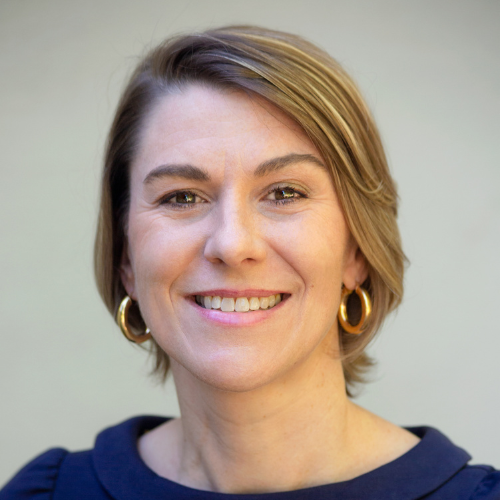
Evan Schmidt is the CEO of Valley Vision, a nonprofit organization that leads regional and statewide initiatives to advance livability by supporting social equity, economic prosperity, and environmental sustainability. She oversees the organization’s six impact areas of Workforce Development, Clean Economy, Food & Agriculture, Broadband & Digital Equity, Healthy Communities and Leadership & Civic Engagement. She is committed to building communities that are vibrant and sustainable and where every person has the opportunity to meet their potential. Under her leadership, Valley Vision creates the foundation for collaboration, research, and vision that enables us to meet those goals.
Keynote: Building An Equitable Future
Alicia John-Baptiste, CEO of SPUR
View a video of the presentation below and download the Powerpoint to follow along here.
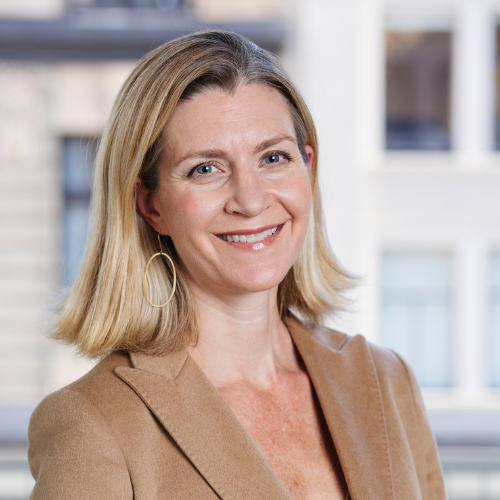
Alicia John-Baptiste is president and CEO of SPUR, the San Francisco Bay Area Planning and Urban Research Association. Alicia has over 20 years of experience reimagining systems to create better outcomes for people. Her optimistic vision and practical approach inform SPUR’s efforts to build a Bay Area where all people can thrive. Alicia has a deep commitment to the collective good while serving in leadership roles for the City and County of San Francisco, and as Chief of Staff at the San Francisco Municipal Transportation Agency. Locally and nationally recognized for her public policy expertise, inspirational perspective and creative approach to systems change. Alicia talks about how we build an equitable future in a way that plans for cities and regions that work for everyone.
Livable Housing Solutions – Presented by SACOG
Kacey Lizon, Rick Jennings, Bonnie Gore, Roshaun Davis
Housing availability and affordability remain a critical topic among leaders in the Sacramento region. SACOG presents a progress report on how well the six-county region is doing towards meeting its Blueprint housing goals. Learn how transportation, smart policy, and investments can help meet housing needs and contribute to a vibrant and thriving region.
View a video of the panel below and download the Powerpoint to follow along here.

Kacey Lizon (Moderator) oversees SACOG’s planning, funding, and technical assistance programs. She has played an instrumental role in regional planning and smart growth
planning and has led initiatives in land use,
housing, transportation, transit-oriented
development, and environmental and
rural planning. Kacey serves as a board
member of the California Chapter of the American Planning Association and is a member of the California Planning Roundtable.

Rick Jennings (Panelist) has served District 7 on the Sacramento City Council since 2014, representing Greenhaven, Pocket, Little Pocket, Land Park, South Lake Park, Curtis Park, and Z’Berg Park. He represents the City’s interests on the Budget and Audit, Personnel & Public Employees, and Racial Equity Committees. Since 1997, he has served, with distinction, as the CEO of the Center for Fathers and Families, a non-profit organization dedicated to strengthening families and building communities in Sacramento. Jennings has served on numerous boards and councils representing youth, neighborhoods, libraries, education. He is the current Chair of the SACOG Board of Directors.

Bonnie Gore (Panelist) was elected to the Placer County Board of Supervisors in June 2018 and served on the Roseville City Council from 2012. Her focus is economic development, fiscal sustainability, public safety, and positive collaboration between local jurisdictions. She serves on the Placer Wastewater Authority JPA, Western Placer Waste Management Authority, California State Association of Counties, and the Greater Sacramento Economic Council. She also served as Chair for SACOG in 2021.

Roshaun Davis (Panelist) partners with community-centric organizations, early stage entrepreneurs, corporate companies, and governmental agencies. His talent for community development, strategic focus and program implementation bridges the gap between the built environment and the community that lives within it. Roshaun is a speaker with a dynamic and engaging style. He has a TEDx talk entitled, “How Do You Show Love To Your City.” He is also a well known musical artist performing in places like South by Southwest, Los Angeles, and New York City, where he found his passion for representing the underrepresented. He has been named Top 100 Business Leaders, 40 under 40, Top 25 Changemakers in Sacramento and received the Local Vision Award from the American Planning Association.
Housing the Unhoused: An Action Plan for Change
Jeneba Lahai, Dianna Pogetto, Dr. Jonathan Porteus, Rosario Rodriguez, Angela Upshaw
Introduced by Lisa Bates & Moderated by Evan Schmidt
Livability Poll respondents cited homelessness and affordable housing as the two top issues of concern in our region and among the most pressing challenges to livability that our region faces. Recognizing and taking action to address these issues is critical to support livability in communities across our region. Learn what solutions community leaders and advocates are advancing to address this humanitarian, public health and safety, and business issue.
View a video of the panel below and download the Powerpoint to follow along here.

Lisa Bates (Introducer) is CEO of Sacramento Steps Forward, a leading voice in building a homeless response system and manager of the Sacramento Homeless Continuum of Care. She has led housing policy initiatives including adoption of a statewide housing plan, advancing racial equity strategies, and overseeing deployment of community development funding to communities and affordable housing developers.

Jeneba Lahai (Panelist) is Executive Director of the Yolo County Children’s Alliance, a non-profit that provides wrap-around and direct services to families in need as well as the Child Abuse Prevention Council of Yolo County. She has developed inter-agency collaboration programs to meet the needs of the community. Jeneba serves as board chair of Yolo County’s Homeless and Poverty Action Coalition, member of the Yolo County Health Council, member of the Yolo County’s Head-start policy council and a board member of the West Sacramento Housing Development Corporation.

Dianna Poggetto (Panelist) is Executive Director of the American River Parkway Foundation, ensuring the 23-mile, 4,800- acre parkland and river that runs through the urban core is protected for generations to come. She has been involved with non-profit organizations and public policy in Washington D.C., working with the National Council on Independent Living Centers to help craft the Americans with Disabilities Act and has been actively involved in shaping public policy for homeless initiatives and child welfare.

Dr. Jonathan Porteus (Panelist) is CEO WellSpace Health, a regional community health system. He leads a team of 1,000 healthcare professionals who provide medical, dental, and behavioral health care to approximately 1,400 people per day, all of whom live in poverty or are from underserved communities, including thousands of people are experiencing homelessness.

Rosario Rodriguez (Panelist) is the Vice Mayor for the City of Folsom, elected to office in November 2020 with an intent on making a difference on the issue of homelessness. She is the owner of Sutter Street Taqueria, a restaurant in Historic Folsom. She lived in Folsom with her 16-year-old grandson Antonio, and her 4-year-old German Shepherd, Cody.

Angela Upshaw (Panelist) is the Director of Programs at Berkeley Food & Housing Project where she oversees programs that support people experiencing homelessness and food insecurity. Programs include Military Veteran-specific programs: Supportive Services for Veteran Families, Grant and Per Diem, and the Homeless Veteran Reintegration Program across seven Northern California Counties. Angela currently serves as the Vice Chair for the Sacramento Continuum of Care (CoC), Co-Chair of Sacramento CoC’s Racial Equity Committee, and Board member of the East Bay Housing Organizations (EBHO).
A Livable Future: Livability in the Eyes of the Next Generation
Tate Chatfield, Skyler Harris, Ariana Thakur, Grace Hadani
Amidst a global pandemic, in a society and economy undergoing unprecedented change, our youth are finding ways to forge their own path and make a positive impact in the world. Hear from the students and members of the Sacramento Area Council of Governments’ (SACOG) Youth Leadership Academy who share their unique perspectives on what livability means to them and the future that they envision for our region.
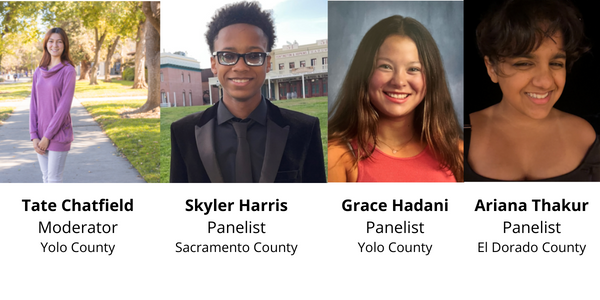
Livability Summit 2022 Post-Event Materials
Materials from the Livability Summit 2022
Livability Summit Event Recap Summary Report
Panelists & Speakers:
Click here to view the slide presentations, speakers, and videos from the Livability Summit.
Photos
To view the Livability Summit gallery, click here.

The Livability Summit: Virtuous Circle of Connection
Read the Livability Summit blog post here by Valley Vision CEO – Evan Schmidt
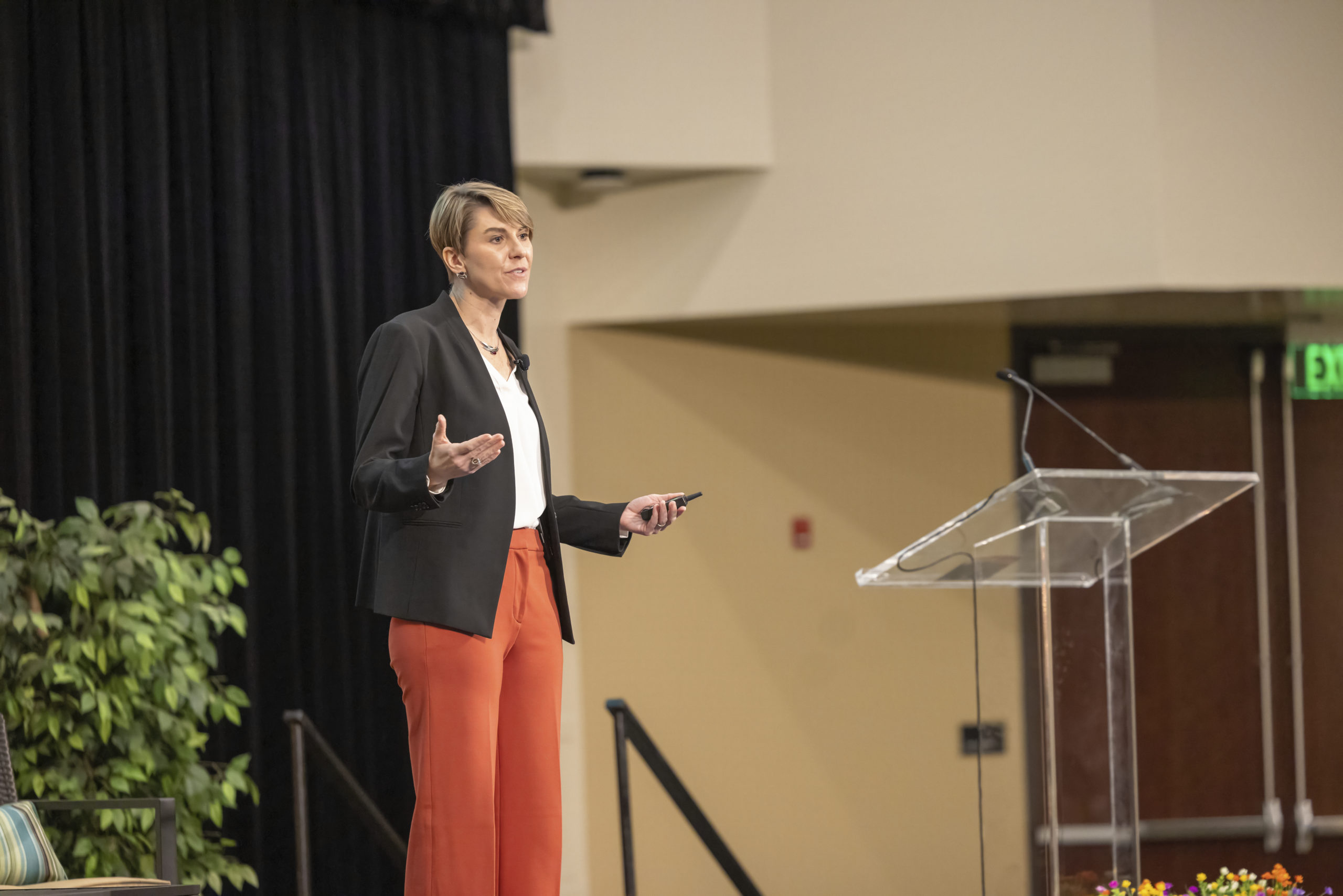
North Sacramento Video
Videos produced by KJ2 Productions
Our Livability Summit asked two important questions: What is “livability” and how do we actualize it in our communities? The answers to these questions may be different according to one’s own experiences and interests. Leaders from North Sacramento provide their perspective on livability through the lens of being a part of one of Sacramento’s oldest neighborhoods. They also remind us of the power and inspiration that community pride can create.
Video Participants:
- Daniel Savala, Director of the El Paso Boulevard Partnership
- Larry Lee, President/Publisher of The Sacramento Observer
- Shaun Thao, Director of Hope Community Center
- Mina Perez, CEO/President of The Vida De Oro Foundation
- Julie Lynhiavue, CEO of T&Y Supermarket
- Kevin Dobson, Founder/Executive Director of Capital College and Career Academy
SMUD Sustainable Communities Program &
Resource Priorities Map
The Sustainable Communities program helps bring environmental equity and economic vitality to all communities in our service area, with special attention given to historically underserved neighborhoods.
In order to deploy comprehensive resources for our communities most in need, we must align our region’s investments toward the goal of creating and supporting healthy, vibrant, and economically sustainable neighborhoods.
This interactive map helps analyze current data to indicate the local areas most likely to be underserved or in distress by a lack of community development, income, housing, employment opportunities, transportation, medical treatment, nutrition, education, and a clean environment.
View the Livability Summit presentation for the program and the map below.
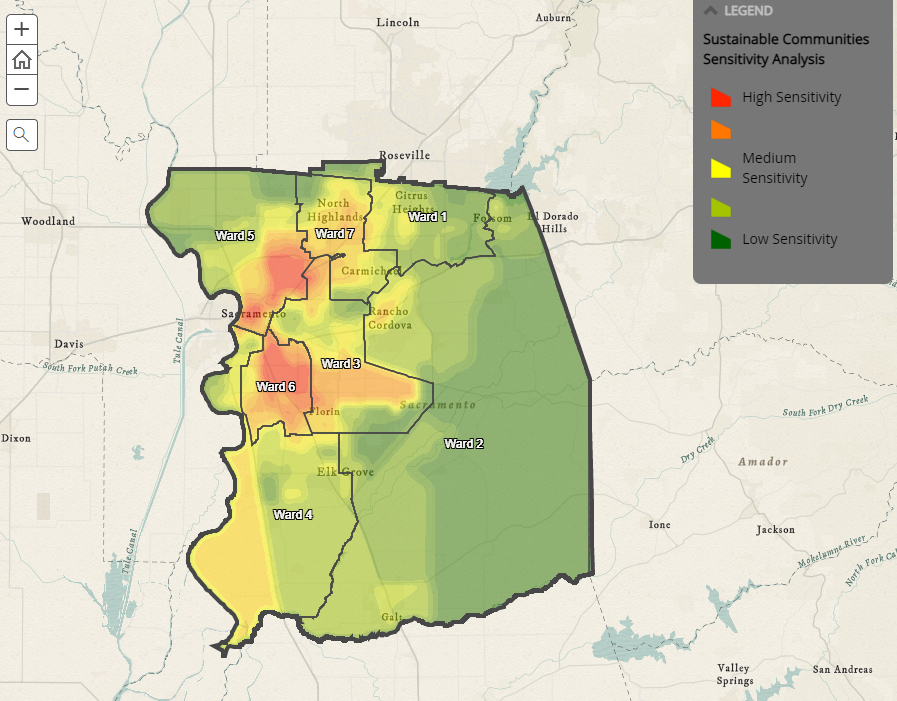
The Livability Poll (October 2022)
The Livability Poll is a broad based quality of life poll, tracking residents’ experiences with issues such as affordability of necessities, access to services, job and career satisfaction, safety and belonging, as well as residents’ perspectives of the Sacramento Region.
The Poll was in the field from mid-June to mid-July of 2022. It is demographically representative of the Capital region, encompassing Sacramento, El Dorado, Placer, Sutter, Yolo, and Yuba counties, and has a margin of error of plus or minus 2.3 percent.
This poll is a project of Valley Vision and CapRadio, in partnership with the Institute for Social Research at Sacramento State.
Residents are split as to how their overall quality of life has changed in the last five years. They think positively of the region as a place to grow up, pursue a career, and raise a family, but more than one-fourth think it is a poor place to purchase a home or retire. Residents are most concerned about issues like the cost of housing and homelessness. Almost one-third or more of residents are struggling to afford what they need to live. People of color, particularly Black/African Americans, are more likely than residents overall to be unable to afford certain necessities, like paying rent, mortgage, or other bills.
Concerns among parents are high. About one third of parents say they do not have access to the childcare they need and most parents expressed concern about the continuing disruption the pandemic has on their children’s education.
Many are willing to learn new skills to access more opportunities. More than two-thirds of residents say that they are interested in learning new or improving their skills through education and training programs, and many expressed a preference for programs that last a year or less, are hybrid or remote, and have flexible or weekend hours.
One-fifth of residents say that they feel that their neighborhood or local community is less safe than others. This percentage is significantly higher for communities of color and for those who live in cities as compared to those who live in suburbs or small town/rural areas.
Residents feel the strongest connections with those who live near them. Most residents say they feel accepted by their neighbors, supported by their neighbors, and connected to their neighbors.
Residents are struggling with their mental health, but resources to address these issues are limited. Eighty-one percent say they have felt stress or anxiety at least once in the last seven days and more than half say they felt depression and hopelessness. Yet, almost one-third say they do not have access to quality and affordable mental health services.
You can also access CapRadio’s coverage of the poll at www.capradio.org.
Backbone Support & Governance Subcommittee Meeting 3 – July 21, 2022
On July 21, 2022, Valley Vision held the third meeting for the California Jobs First (CERF) Backbone Support & Governance Subcommittee. The meeting included a presentation in which Valley Vision shared the changes made to the proposed governance structure and then solicited any remaining feedback from the group. In addition to viewing the recording below, you may also view the meeting minutes.
Backbone Support & Governance Subcommittee Meeting 2 – July 14, 2022
On July 14, 2022, Valley Vision held the second meeting for the California Jobs First (CERF) Backbone Support & Governance Subcommittee. The meeting included a presentation in which Valley Vision shared our proposed governance structure and then solicited feedback from the group through discussion. In addition to viewing the recording below, you may also download the slides and meeting minutes.
Community Engagement Subcommittee Workshop – July 13, 2022
On July 13, 2022, Valley Vision held the California Jobs First (CERF) Community Engagement Subcommittee Workshop. The meeting included a presentation with an overview of the California Jobs First (CERF) program and established the foundation for the Community Engagement Subcommittee. There were also two group discussions. The first was a feedback session on the potential guiding values for the work moving forward. The second surfaced community engagement strategies for our region. In addition to viewing the recording below, you may also download the slides and meeting minutes.
Capacity-Building & Technical Assistance Subcommittee Workshop – July 13, 2022
On July 13, 2022, Valley Vision held the California Jobs First (CERF) Capacity-Building and Technical Assistance Subcommittee Workshop. The meeting included a presentation with an overview of the California Jobs First (CERF) program and established the foundation for the CB&TA Subcommittee. There were also two group discussions. The first was a feedback session on the potential guiding values for the work moving forward. The second surfaced capacity-building and technical assistance needs and strategies for our region. In addition to viewing the recording below, you may also download the slides and meeting minutes.
Data, Research, & Evaluation Subcommittee Workshop – July 12, 2022
On July 12, 2022, Valley Vision held the California Jobs First (CERF) Data, Research, and Evaluation Subcommittee Workshop. The meeting included a presentation with an overview of the California Jobs First (CERF) program and established the foundation for the DRE Subcommittee. There were also two group discussions. The first was a feedback session on the potential guiding values for the work moving forward. The second surfaced research and data assets, needs, activities, and capacity-building opportunities for our region. In addition to viewing the recording below, you may also download the slides and meeting minutes.
